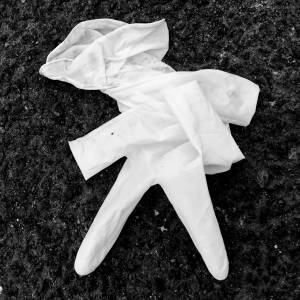Strokestown: Under The Rookeries
I was shortlisted again (this is my third time) for the Strokestown International Poetry Prize. The poem is a rather odd little sonnet called Cochlear Implant:
Cochlear Implant
'I could actually hear the skin
separating. I'd peel a hundred satsumas
just to hear that.' And immediately
I wanted to reach for one, dig my thumbs in
for the zesty, whispery rip --
as the inner ear uncoils its stethoscope
for the endangered ghost of a foghorn, tyres
on a wet road's unpeeling tape, the little whinny
a dog sometimes makes in its sleep:
shoes creaking into the fresh snow's crust
in the library of small sounds where satsumas
get peeled very slowly and Basho's frog goes plop!
cupped in that haiku, along with its pond
and summer's trembling meniscus.
I have to thank BBC Radio 4 for the opening lines, an interview with someone who'd previously been almost deaf, talking about how excited he was to hear all those small sounds that he'd never known existed. You can read the rest of the shortlisted poems HERE.
I drove up on Saturday with my cousin Dave. The weather was a bit chillier than it's been recently, but we had a nice smooth drive, chatting about this and that (I never even bothered to switch on my iPod). We arrived with plenty of time to check into the Percy French hotel. I was due to read in two events. The first was a new idea, to have the shortlisted poets choose a favourite poem to read and talk about. I chose one by a Nobel Prize winning Polish poet I rediscovered recently, Wis?awa Szymborska, her marvelous and devastating poem Cat In An Empty Apartment (the cat poem to end all cat poems). I said that what attracted me to this poem was its grave, grown-up-child accuracy, an ability to put its finger directly on the images/words that brought the experience alive, words that twanged and shivered like arrows.
Later there was the main reading at which the prizes were announced. Before going to that, I wandered around the grounds of the main venue, grey, imposing, gravel-crunching Strokestown House. The sheep-grazing fields are bordered by huge shaggy trees, most of which are only just budding, and something wintery is preserved in their nervy silhouettes. The higher branch-script is blotted with rookeries, which my crunching footsteps seemed to disturb, so that they shook and showered and swirled above me, hollowing out the air with their craaaws and raaawks and twangy, duck-like ricochets. Their music felt about right for the occasion. In fact, I had noticed the rookeries elsewhere in Strokestown; the village seems to be half-swamped with them, shades of Hitchcock, though where was their counterpoint? You can't have The Birds without The Blonde.
I wasn't at all surprised to not receive one of the prizes, and I was glad to see Jude Nutter's wonderful poem with the long title, Field Notes : Watching the Crew of Atlantis Renovating the Hubble Telescope, land the first prize. However, her elegiac meditation left me feeling a bit strange, as it brought back that raw ache of my mother's death. As Julian Barnes wrote in his recent lovely book Levels of Life (which I read over the weekend), grief is one of those lines, or 'tropics', we cross, which divides us from anyone who hasn't known grief. That, and this being the third time unlucky, left me feeling slightly at a loss, wondering what I was doing in such a place. Friends were there to talk with though, fellow writer Yvonne Cullen, Triona, Johnny Hughes and of course my cousins Dave and Pat. We stayed up drinking in Beirne's, the little grocery shop/pub that is special to Strokestown. Apparently the owner died since our last visit. I shot a little film at that time, in which he appears. I must send it to his relatives.
Later to bed, and my cousins' roof-raising snores meant that I didn't manage to burrow into sleep till after five.

Comments
Sign in or get an account to comment.


